Rep. Terri Sewell reflects on Dr. Martin Luther King Jr’s legacy
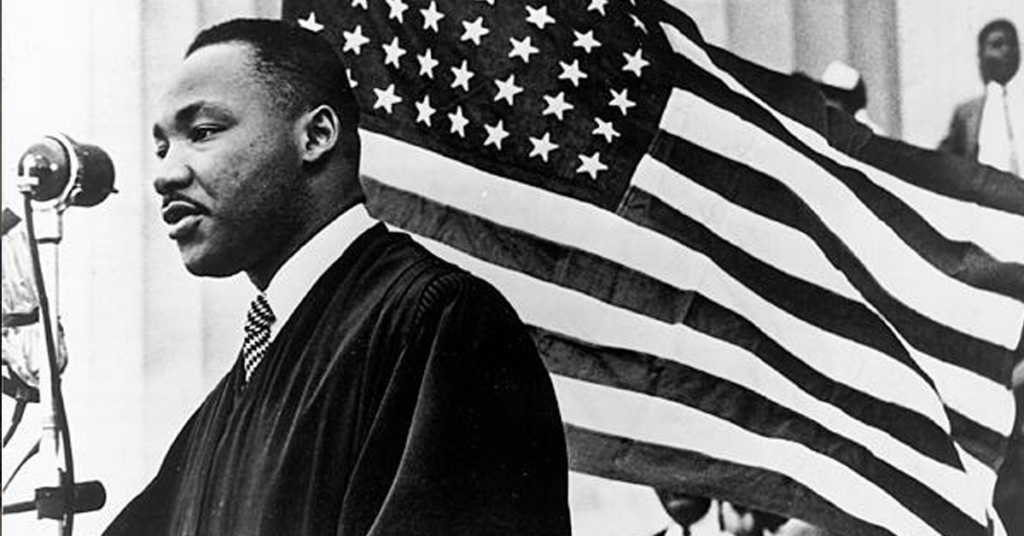
It has been 55 years since Dr. Martin Luther King Jr‘s iconic “I have a dream” speech in Washington D.C., but his words live on in the hearts of Americans across the country. One of those Americans is Alabama 7th District U.S. Rep. Terri Sewell — Alabama’s first African American woman in serve in the state’s congressional delegation. A bold advocate for civil rights herself, Sewell is taking time on Monday to reflect on Dr. King’s life and legacy calling on all American’s to recommit to the vision Dr. King espoused. “We are the vanguard of change,” Sewell state in an MLK Day statement. “[Dr. King’s] dream lives inside each of us – a dream rooted in respect, human dignity and justice for all. Let us work while it is day.” Read Sewell’s full statement on Dr. King below: Each year, we gather to celebrate the birthday of Dr. Martin Luther King, Jr., and to pause and reflect on all that he has taught us throughout his short, yet impactful life. Dr. King dedicated his life to dismantling discrimination, empowering communities, and ensuring that this country lives up to its creed of equality for all. It is not enough, however, to simply honor Dr. King’s legacy. Each of us must look within ourselves and ask ‘How are we paying it forward?’ As the direct beneficiaries of the sacrifices of Dr. King and so many other heroes and heroines, named and unnamed, we owe a debt that we can never repay. Yet, we can ensure that we recommit ourselves to the vision Dr. King espoused and continue the hard work necessary to carry forth his ideals. We are the vanguard of change. The dream lives inside each of us – a dream rooted in respect, human dignity and justice for all. Let us work while it is day.
Inauguration in sight, Donald Trump continues Twitter assault
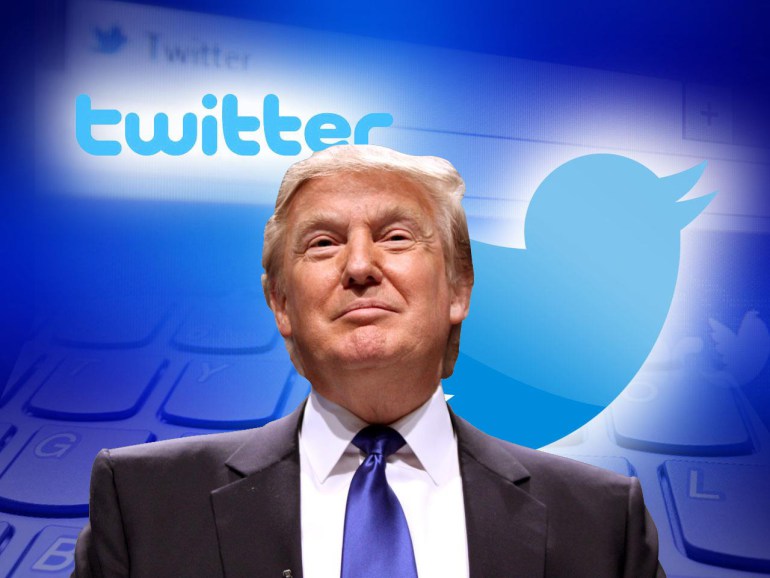
His inauguration days away, President-elect Donald Trump is continuing to lash out at critics in the intelligence community and Democrats in Congress who are vowing to skip his swearing-in ceremony. The tough-talking Republican questioned whether the CIA director himself was “the leaker of fake news” in a Sunday night tweet. The extraordinary criticism from the incoming president came hours after CIA chief John Brennan charged that Trump lacks a full understanding of the threat Moscow poses to the United States, delivering a public lecture to the president-elect that further highlighted the bitter state of Trump’s relations with American intelligence agencies. “Now that he’s going to have an opportunity to do something for our national security as opposed to talking and tweeting, he’s going to have tremendous responsibility to make sure that U.S. and national security interests are protected,” Brennan said on “Fox News Sunday,” warning that the president-elect’s impulsivity could be dangerous. Trump shot back in a Twitter post Sunday, saying: “Oh really, couldn’t do much worse – just look at Syria (red line), Crimea, Ukraine and the build-up of Russian nukes. Not good! Was this the leaker of Fake News?” The president-elect remained behind closed doors in his Manhattan high rise for the weekend as his team worked to answer questions about his plans at home and abroad once he’s sworn into office on Friday. Among Trump’s immediate challenges: the United States’ complicated relationship with Russia, crafting an affordable health care alternative that doesn’t strip coverage from millions of Americans and dealing with an assertion by Rep. John Lewis, a civil rights icon, that his election was not legitimate. Without providing details, Trump promised his plan to replace the nation’s health care law would provide universal coverage, according to a Washington Post interview published late Sunday. “We’re going to have insurance for everybody,” he said. “There was a philosophy in some circles that if you can’t pay for it, you don’t get it. That’s not going to happen with us.” In a separate interview with the Times of London, Trump indicated that he could lift sanctions imposed on Russia for its military intervention in Ukraine in exchange for a nuclear arms deal. The suggestion met a frosty reception in Moscow. Meanwhile, a growing number of Democrats in Congress have vowed to skip Trump’s inauguration. “We cannot normalize Donald Trump, and we certainly cannot turn our heads and ignore such a threat to the institutions and values of our democracy,” Rep. Jerrold Nadler of New York said Monday in a statement. Trump’s lieutenants pushed back hard, particularly against Rep. John Lewis, D-Ga., a civil rights legend who said Russian interference in Trump’s election delegitimizes his presidency. “I think it’s incredibly disappointing and I think it’s irresponsible for people like himself to question the legitimacy of the next United States president,” incoming White House chief of staff Reince Priebus said of Lewis on ABC’s “This Week,” insisting that Republicans did not question the legitimacy of President Barack Obama‘s victory eight years ago. Vice President-elect Mike Pence said on “Fox News Sunday” that he hopes Lewis will change his mind and attend. Priebus later acknowledged that conservatives – led by Trump himself – spent years questioning Obama’s eligibility to serve as president, suggesting he was not born in the United States. Trump has done little to encourage unity in recent days, instead inflaming tensions with his critics through a series of tweets. The incoming president tweeted Saturday that Lewis should pay more attention to his “crime ridden” Atlanta-area district, adding that the civil rights leader was “all talk.” Questions about Trump’s relationship with Russia have dominated the days leading up to his inauguration. Michael Flynn, who is set to become Trump’s national security adviser, has been in frequent contact with Russia’s ambassador to the U.S. in recent weeks, including on the day the Obama administration hit Moscow with sanctions in retaliation for the alleged election hacking, a senior U.S. official said. After initially denying the contact took place, Trump’s team publicly acknowledged the conversations on Sunday. “The conversations that took place at that time were not in any way related to the new U.S. sanctions against Russia or the expulsion of diplomats,” said Pence. Repeated contacts just as Obama imposed sanctions would raise questions about whether Trump’s team discussed – or even helped shape – Russia’s response. Russian President Vladimir Putin unexpectedly did not retaliate against the U.S. for the sanctions or the expulsion of 35 Russian diplomats, a decision Trump quickly praised. Trump has repeatedly called for a better relationship between the U.S. and Putin’s government. He suggested in an interview with The Wall Street Journal on Friday that he’d consider easing the latest sanctions on Russia. “I think he has to be mindful that he does not have a full appreciation and understanding of what the implications are of going down that road,” Brennan said. Republished with permission of The Associated Press.
This time, inaugural fashion is intertwined with politics
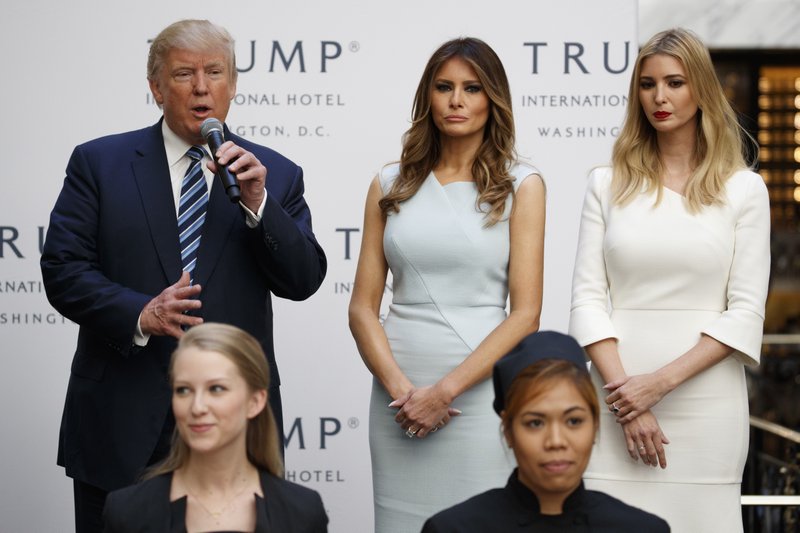
What’ll she be wearing? It’s a question that fascinates fashion-watchers — and lots of others — every four years: Which designer will the new U.S. first lady choose to wear on Inauguration Day and, more importantly, on Inauguration Night? This year as never before, the question is a loaded one. Dressing the first lady has long been considered a great honor for a designer — and a huge business boon. But in an industry that leaned heavily toward Hillary Clinton, a number of designers have indicated they have no interest in dressing Melania Trump. So the question is not merely whom she’ll be choosing — if she doesn’t simply buy off the rack — but also, in a sense, who’ll be choosing her. And the first lady’s inaugural attire is not the only example of how political concerns have seeped into fashion lately in unexpected ways. The fashion choices of Ivanka Trump, the daughter who many believe will serve as a quasi-first lady, have also come under scrutiny. She recently announced she’s leaving her executive position at the Ivanka Trump clothing and accessories brand, calling it a “formal leave of absence” as she and her husband, Jared Kushner, head to Washington, where he will be a senior adviser to President Donald Trump. But what about her role as the brand’s most visible ambassador? Ivanka Trump frequently wears her own label, as she did with a fitted pastel pink shift dress at the Republican National Convention in July, and with a $10,800 bangle bracelet on “60 Minutes” in November. She hasn’t said whether she’ll continue to wear her own label; a spokesperson declined to answer when queried by The Associated Press. If she does, it could be viewed as promoting the brand. Of course, neither Ivanka nor Melania Trump (nor anyone else) needs permission to wear a designer; they can buy whatever they like. But since high-end first lady fashion is often custom-made, as it often was for Michelle Obama, a designer’s choice comes into play. The debate began in November when New York-based designer Sophie Theallet said she would not dress Melania Trump, citing “the rhetoric of racism, sexism and xenophobia unleashed by her husband’s presidential campaign.” Few designers made such public declarations, but when asked, a number said they, too, would not want to dress the first lady, among them Marc Jacobs. Others said they’d be happy to, including Tommy Hilfiger and Carolina Herrera. Thom Browne said he’d be honored, “out of respect for the position” of first lady. (Browne designed Mrs. Obama’s daytime inaugural outfit in 2013.) Others have wondered whether designers should even be talking about politics when it comes to dressing first ladies. Naeem Khan, the Indian-born American designer who often dressed Mrs. Obama, thinks it’s an important discussion. “Every designer has a point of view,” Khan said in an interview. “A designer is an artist, and should have the choice of who they want to dress or not.” For Khan, the choice is clear. Though he was approached by a common social friend about possibly designing an inaugural gown for Melania Trump, he says, he declined to pursue the opportunity. “I don’t think it’s right,” he said, citing in part his long association with Michelle Obama, whom he dressed close to 20 times, including a shimmering gown for her first state dinner, with India’s prime minister. He was quick to note that Melania Trump “might be a great person for all we know.” But, he added, “the values of this administration do not comply with the values of who I feel we are as a nation.” Whom will Melania Trump pick? She wore a sleeveless black Dolce & Gabbana dress for New Year’s Eve (believed to have been purchased off the rack), drawing thanks on Instagram from Stefano Gabbana and speculation she might choose the Italian designers. But others think she’ll more likely choose an American designer, perhaps Ralph Lauren, whose designs she wore in the campaign. Or perhaps she might, like Mrs. Obama in 2009, choose to boost the profile of lesser known designers. “The impact of the first lady is really, really powerful,” said Khan. “It turned us into a global business.” Whatever Melania Trump chooses, politics has entered the discussion in an unprecedented way, says historian Carl Sferrazza Anthony of the National First Ladies’ Library. Anthony notes that politics crept into inaugural fashion before, but only after the fact, when an outfit was deemed too expensive in a time of economic hardship. This is different. “This is the first time that this moment is being used by professionals and people in the fashion industry as an opportunity to put their political views out there in public,” he said. Even the fashion choices of Donald Trump himself have come under discussion. Santo Versace, president of Gianni Versace fashion house, told Italy’s state RAI radio that he welcomes Trump as a client in any Versace boutique. But he added: “Honestly, I personally wouldn’t dress him. He says many things that I don’t like.” Republished with permission of The Associated Press.
Joe Biden: Donald Trump should retain sanctions on Russia
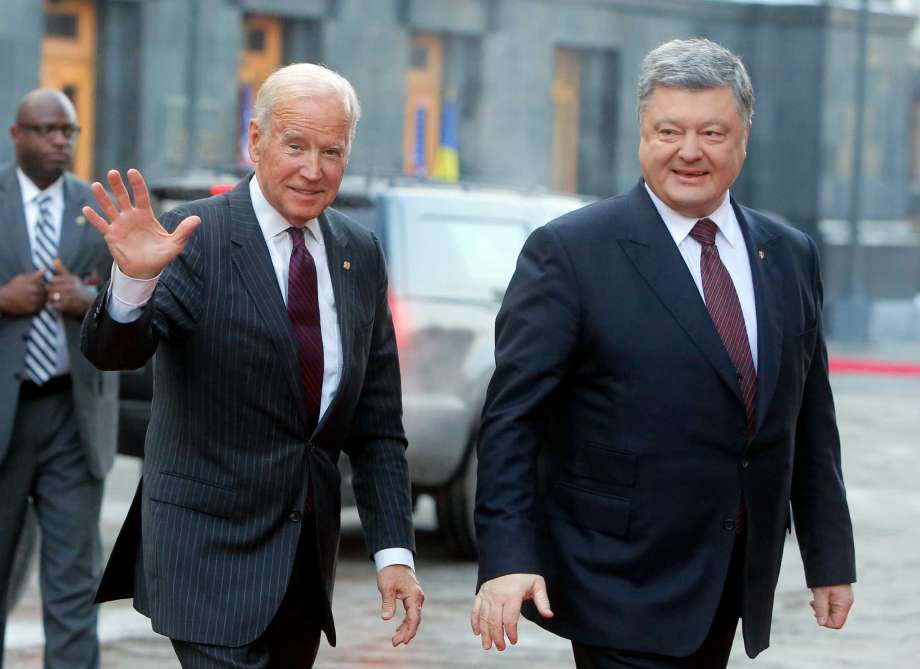
U.S. Vice President Joe Biden, on a last foreign trip before leaving office, has met with Ukraine’s president and called on the impending Donald Trump administration to retain Ukraine-related sanctions against Russia. Biden’s comments Monday at a briefing with President Petro Poroshenko came after Trump indicated in a Times of London interview that he could end sanctions imposed in the aftermath Russia’s 2014 annexation of Crimea in return for a nuclear arms reduction deal. “The Crimea-related sanctions against Russia must remain in place until Russia returns full control to the people of Ukraine,” Biden said. Other U.S. sanctions are connected to Russia’s involvement in the separatist war in eastern Ukraine. Biden said that Russia must fulfill its obligations under the 2015 Minsk agreement on ending that conflict. Republish with permission of The Associated Press.
Barack Obama made Kenyan artist’s name, but Donald Trump portraits fizzle
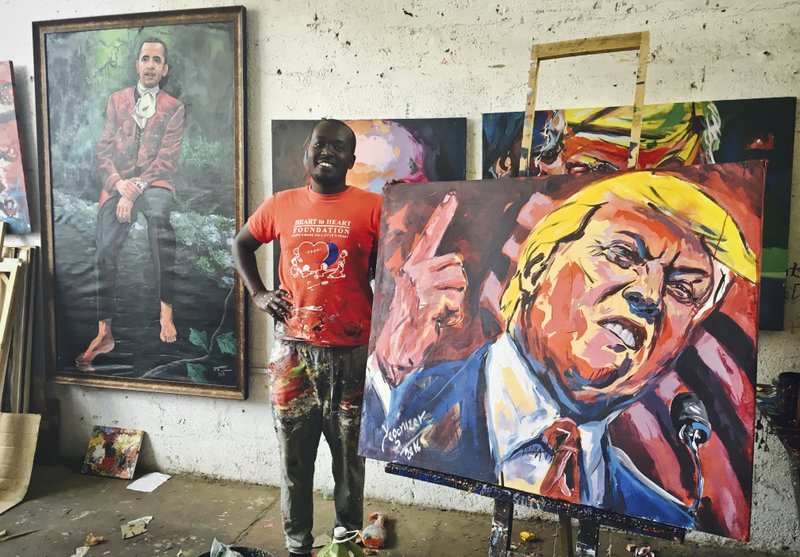
Kenyan artist Evans Yegon is sad to see President Barack Obama leave office. The artist has made a name for himself painting $1,000 portraits of Obama and he’s finding the new focus of his work — Donald Trump — a hard sell. Obama’s presidency electrified Kenyans, who are proud that his father was a Kenyan. Thousands thronged Obama’s visit to the country as president in 2015. Many express sadness at the impending end of Obama’s time in office. “Simple: Obama is a sort of miracle of the century,” journalist Ochieng Ogodo posted on Facebook. While Trump is an interesting subject with his facial expressions and persona, Yegon said he has struggled to find buyers for his paintings of the president-elect. “Even if you are a Donald Trump supporter, you don’t want to make it public,” Yegon said. “I painted him because he is hated and he is loved.” Yegon has sold just one Trump painting, to an American client, of the 10 he has painted so far. He said he sold 28 of the 30 Obama paintings he made during the outgoing president’s second term. Republished with permission of The Associated Press.
Who are the 8 richest people? All men, mostly Americans
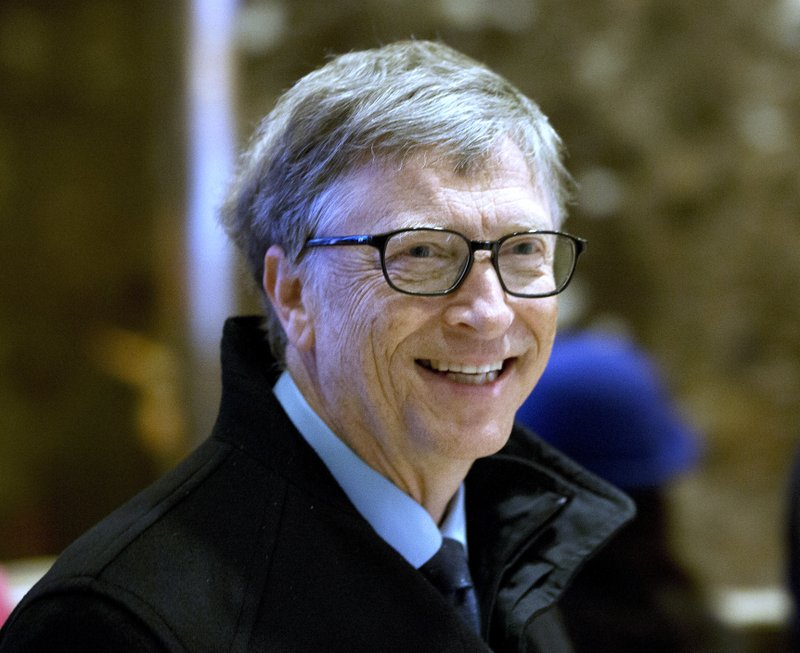
The eight individuals who own as much as half of the rest of the planet are all men, and have largely made their fortunes in technology. Most are American, with one European and one Mexican in the mix. Several have pledged to give it all to charity. The eight tycoons’ net worth, as calculated by Forbes magazine, was cited Monday by anti-poverty activists Oxfam in a report highlighting income inequality. Although most of them will not be joining the annual meeting of business and political elites in the Swiss town of Davos this week, the extraordinary individual wealth they typify will be part of the gathering’s discussions on inequality. Here’s a look at who they are. ___ Bill Gates: $75 billion The man whose name is a byword for billionaire. Gates co-founded Microsoft in the mid-70s, growing it into the world’s biggest software company and helping to make computers a household item. He quit as CEO in 2000 and pledged to devote his fortune to his philanthropic activities in the Bill and Melinda Gates Foundation. He has gradually reduced his ownership in Microsoft to less than 3 percent, with the bulk of his wealth in a private firm. He’s the only one on the list who’s a regular at Davos. ___ Amancio Ortega: $67 billion The richest person in Europe, Ortega opened the first Zara fashion shop in 1975. Now, the chain, part of Ortega’s Inditex group, has 7,000 shops globally. Its boom in popularity is largely due to a low cost model that competes with the likes of H&M. As Zara and Inditex grew in size, Ortega, a Spaniard, held on to a majority stake of 59 percent in the company, which has a market value of over 97 billion euros ($102 billion). ___ Warren Buffett: $60.8 billion The Oracle of Omaha, as he’s known for the way his every investment decision is followed by thousands. Buffett began investing as a teenager in the 1940s and gradually grew his firm, Berkshire Hathaway. Buffett, 86, is notoriously frugal and favors investing in companies with proven business models over new industries, such as in technology. He’s said he will give away the bulk of his wealth to philanthropy. Since 2006, he’s been donating blocks of Berkshire stock to the Bill and Melinda Gates Foundation. ___ Carlos Slim Helu: $50 billion The Mexican tycoon owes his fortune to a major ownership in America Movil, a telecommunications multinational worth $42 billion. He personally owns about 7 percent in the company while his broader family retains a 37 percent stake. He was ranked as the richest person three years ago, but saw his net worth hit by a downturn in Latin American economies. U.S. President-elect Donald Trump‘s threats to scrap free trade deals and build a wall on the U.S.-Mexico border have also hurt shares in his business interests. Forbes estimates his net worth dropped $5 billion in the four days after Trump’s election. ___ Jeff Bezos: $45.2 billion The founder and CEO of Amazon.com helped revolutionize the retail industry by popularizing online shopping. What was initially an online book shop now sells pretty much anything. Bezos has reached beyond Amazon, in which he holds a 17 percent stake, to try his hand in other industries. He’s bought the Washington Post and set up an aerospace company, Blue Origin, that aims to make space accessible to tourists and paying customers. ___ Mark Zuckerberg: $44.6 billion He founded Facebook in 2004 while a college student to connect other Harvard students. The company went on to become popular globally and listed its shares publicly in 2012, making Zuckerberg, now 32, a multibillionaire. He’s managed to make Facebook profitable where rivals like Twitter have lagged, and expanded it with targeted acquisitions. He and his wife have pledged to sell 99 percent of their holdings in Facebook — over 400 million shares, worth about $50 billion — to support philanthropic causes. ___ Larry Ellison: $43.6 billion As a young programmer in the ’70s, Ellison’s first big client was the CIA. The name of the project was “Oracle.” In 1977, Ellison and associates used that name for their company, which creates software that helps manage databases and has since become an industry standard. Ellison has recently focused more on cloud computing, in which data is stored and managed across a network of computers. His fortune comes from the 27 percent stake he still owns in Oracle, a company worth $160 billion. ___ Michael Bloomberg: $40 billion Created the eponymous financial information provider in 1981 after getting laid off from an investment bank. Bloomberg made it a lucrative business in particular by selling data terminals to financial services firms. The multi-screen terminals became essential tools in the industry, incorporating real-time market information with a news service. Bloomberg, who reportedly retains an 88 percent stake in the privately held company, turned to politics in 2001, becoming mayor of New York City for three terms. Republished with permission of The Associated Press.
Mike Pence looks like he will be Donald Trump’s inside man in Congress

When Mike Pence landed in Congress after the 2000 election, he was a conservative agitator who often bucked President George W. Bush‘s agenda. Seventeen years later, he’s the vice president-elect and Donald Trump‘s inside man on Capitol Hill. Pence, who spent a dozen years in Congress before becoming Indiana’s governor, is visiting frequently with lawmakers and promising close coordination after Trump’s inauguration Friday. In a sign of his attentiveness, Pence will have an office in the House as well as the traditional honorary office for the vice president in the Senate. Pence’s role takes on greater importance, given Trump’s ascension to the White House without any experience in elective office. Trump has few long-standing political alliances in Congress and a strained relationship with the Republican establishment, a hangover from the 2016 campaign. Trump’s agenda doesn’t always align with Republicans’ priorities, and his inflammatory remarks about immigrants, Muslims and women made many in the GOP cringe. Pence has forged an enduring friendship with House Speaker Paul Ryan, R-Wis., dating to their early years in Congress, along with other House Republicans crucial to advancing Trump’s agenda. In early meetings with lawmakers, Pence has passed out his personal cellphone number and promised an open line to the administration. “He’s the trusted intermediary. He’s the person that people on both sides of Pennsylvania Avenue know and trust,” said Rep. Tom Cole, R-Okla. If Trump is known for his brash form of disruptive politics, Pence represents the incoming administration in a more traditional manner, exemplified by his polite, Midwestern demeanor. He joined Trump in New York on Wednesday for the president-elect’s first news conference since the Nov. 8 election. Pence soon returned to Capitol Hill for meetings with several senators, including Democrats Joe Donnelly of Indiana, Joe Manchin of West Virginia and Tim Kaine of Virginia. The latter was Hillary Clinton‘s running mate and Pence’s adversary in October’s vice president debate. “Opportunities to work together on issues like infrastructure and child care we think represent a significant chance to bring together leaders in both political parties,” Pence said after meeting with Kaine. Pence’s early days in Washington were marked more by his role as a conservative purist than deal-maker. He opposed the Bush administration on issues such as the president’s No Child Left Behind education law and an overhaul of Medicare that provided new prescription drug coverage in 2003. Pence was a leading conservative voice, often arguing that the Republican administration had strayed from conservative principles and had failed to curb federal spending. After Republicans were swept from power in the 2006 elections, Pence unsuccessfully challenged Rep. John Boehner, R-Ohio, to become minority leader. Two years later, Boehner backed Pence’s entry into the leadership team, elevating the Indiana congressman to chairman of the House GOP conference, the party’s No. 3 post. One of the ways Pence built lasting ties with fellow lawmakers was through Bible study. Pence often joined Ryan, House Financial Services Chairman Jeb Hensarling, R-Texas, and Georgia Rep. Tom Price, Trump’s pick to lead the Department of Health and Human Services, for weekly Bible study sessions. House Republicans say those are the types of interactions that will help him in Trump’s administration. “Mike Pence is a House man. He cares about us and he will make sure that we are in the loop,” said Rep. Jack Carter, R-Texas, who also attended Bible study with Pence. By having an office in the House along with the ceremonial one in the Senate for his role as the chamber’s president, Pence will follow a path set by Vice President Dick Cheney, a former Wyoming congressman who maintained a House office during the Bush presidency. Pence’s conservative record gives rank-and-file Democrats few reasons to be hopeful that he could be a bipartisan deal-maker on Trump’s behalf. Planned Parenthood, for example, mobilized after Ryan said he planned to strip federal dollars from their organization as part of repeal of Obama’s health care law. The organization pointed to Pence’s anti-abortion record and history of seeking to block federal dollars from the health care provider as one of the reasons for the quick GOP push. “Mike Pence’s fingerprints are all over that,” said Dawn Laguens, Planned Parenthood’s executive vice president. But Pence has tried to build some bridges. When Manchin, a centrist Democrat facing re-election next year, called incoming Trump White House adviser Katie Walsh in early January to request a meeting with Pence, the senator found himself face to face with Pence only a few hours later. They exchanged cellphone numbers and Manchin again sat down with Pence on Wednesday for a discussion that included the Supreme Court vacancy and federal judicial appointments. “My job is going to be trying to find pathways forward – how do you find a way to fix things, repair things and make things happen? So you’ve got to build these relationships,” Manchin said. Republish with permission of The Associated Press.
A look at how Donald Trump might shake things up in Asia

Donald Trump has offered views on U.S. relations with Asia that could indicate radical shifts in long-standing policy toward the region. From opposing free trade agreements to confronting China and questioning Japan-South Korea alliances, he appears set to be charting a course far different from previous administrations. Yet, in other areas, including North Korea, India and Pakistan, Trump appears ready to carry forward well-established U.S. policy. As Trump prepares to be sworn-in as president on Friday, here is a look at some of the stand-out issues and how developments might play out: ___ TRADE Trump says he plans to scrap the 12-nation trade pact known as the Trans Pacific Partnership agreement, or TPP. The pact was the centerpiece of the Obama administration’s outreach policy to America’s Asian partners known as “the pivot,” which also involves a greater military commitment to the region. Obama said the TPP would allow the U.S. to impose higher labor, environmental and human-rights standards, as well as give U.S. businesses access to some of the fastest-growing economies. The deal would have slashed 18,000 taxes that other countries impose on American goods and services, but Congress failed to act amid skepticism from both Republicans and Democrats. Trump’s opposition to free-trade agreements has fueled fears of protectionism and puts him at odds not only with U.S. trading partners but also with many in the Republican Party. Killing the TPP may open the way for other regional free-trade initiatives, including those pushed by rival China. “With the U.S. withdrawing from TPP, Japan will have to redesign its external economic policy,” said Harukata Takenaka, politics professor at National Graduate Institute for Policy Studies. Other options “may not be easy,” Takenaka said. ___ CHINA Trump raised China in speech after speech during his campaign, at times accusing the country of ripping America off in trade and threatening a 45 percent tariff on all Chinese imports. Things turned far more serious after his election win when he took a phone call from the president of self-governing Taiwan, upending four decades of diplomatic protocol barring such direct contacts. Critics accused him of ignoring the “one-China policy,” long considered unassailable in China-U.S. relations, to which Trump responded by questioning why the U.S. should be bound by such an arrangement without economic incentives. He again touched on the issue in an interview with The Wall Street Journal published Friday, saying “everything is under negotiation, including ‘one China.’” While the Chinese government’s response was muted, the official China Daily newspaper said he was “playing with fire.” Trump has also criticized the Chinese military’s island-building program in the South China Sea, and accused it of blocking U.S. imports through high taxes and manipulating its currency to the detriment of American exports. ___ ALLIANCES WITH JAPAN AND SOUTH KOREA Trump raised eyebrows during the campaign when he appeared to question the inviolability of long-standing U.S. military alliances with Japan and South Korea, seen as bulwarks against North Korea’s military threats and China’s push for regional dominance. The two were included in a list of countries that Trump said he would be “respectfully asking … to pay more for the tremendous security we provide them.” During the campaign, Trump suggested Japan and South Korea should obtain nuclear weapons so the U.S. would no longer be burdened with the costs of defending them, a disquieting notion in many Asian capitals. But after Trump’s election win, Japan’s Shinzo Abe became the first foreign leader to meet with him, sitting down in Trump Tower with the business mogul and his daughter, Ivanka. Japan is concerned about how spill-over from China-U.S. conflicts might affect its economy and foreign relations, possibly compelling it to play a larger role in regional security, said Harukata Takenaka, politics professor at National Graduate Institute for Policy Studies. “Trump measures would be the top priority for Prime Minister Abe this year. The biggest question is that Trump is unpredictable,” he said. ___ NORTH KOREA’S NUCLEAR THREAT Trump’s approach to North Korea probably offers the least divergence from previous administrations, but he faces stark choices on countering North Korean leader Kim Jong Un‘s missile threat. After Kim, announced in his annual New Year’s address that the country had reached the “final stages” of developing an intercontinental ballistic missile, Trump responded by Twitter: “North Korea just stated that it is in the final stages of developing a nuclear weapon capable of reaching parts of the U.S. It won’t happen!” Trump has not said how his approach to the North might differ from Barack Obama‘s, although his campaign’s position paper talked of more “modern destroyers to counter the ballistic missile threat from Iran and North Korea.” That would appear to indicate continued support for deploying the advanced Terminal High-Altitude Area Defense, or THAAD, anti-missile system in South Korea, despite Chinese and Russian objections. Trump appears to be a firm believer that North Korea could be reined-in if only its sole significant ally China would tighten the screws. ___ INDIA AND PAKISTAN During the campaign, Trump was largely positive toward both India and Pakistan, even while he piled negative rhetoric on China and other nations. However, his threat to ban Muslims from entering the U.S. has raised accusations of Islamophobia. In the days after his win, Trump appeared to follow in the well-trodden path of seeking a balance between the nuclear rivals — albeit in his unorthodox style. A phone call between Trump and Pakistan’s prime minister was remarkable mainly for the effusive praise he reportedly lavished on the struggling state. Pakistan is a U.S. ally in the battle against Islamic extremism but is also close to U.S. rival in Asia, China. In its readout of that call, Pakistan said Trump described the country as “amazing” and expressed a desire to visit — something President Barack Obama did not do. India’s national security adviser followed the Pakistan exchange with a low-key visit to Washington to meet with a senior Trump aide in a sign of New Delhi’s desire to forge close ties
Bradley Byrne: House makes regulatory reform a top priority
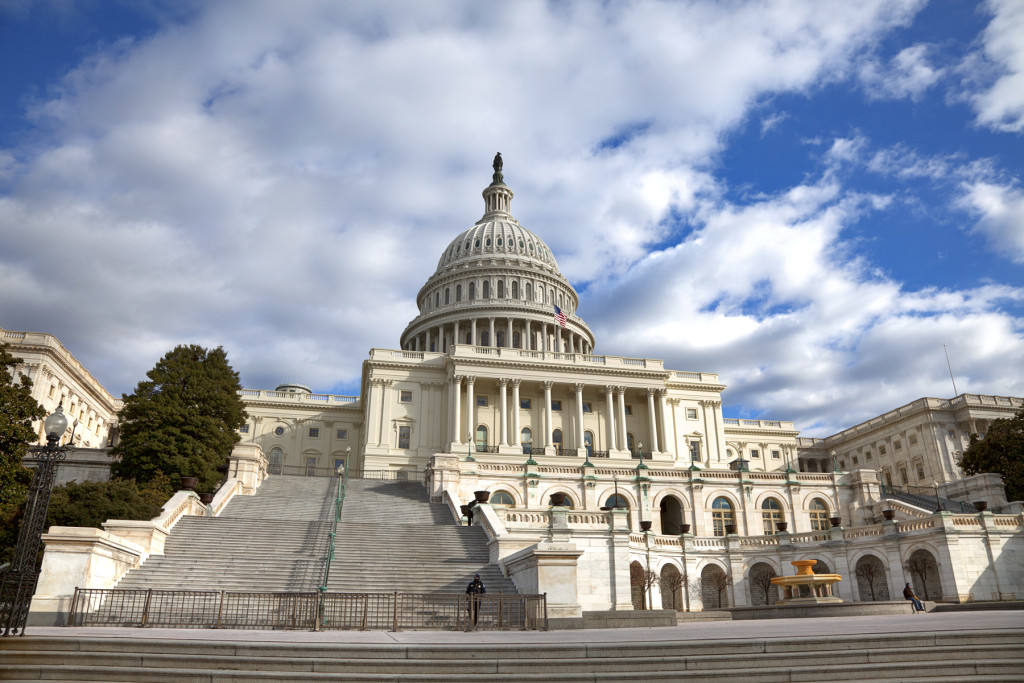
$1,000,000,000,000. That’s the estimated total cost of regulations issued by the Obama Administration. These regulations have resulted in over 754,000,000 hours of paperwork. These numbers are pretty remarkable. The wide range of regulations cover everything from energy to agriculture to the environment. In addition to having a negative effect on all those directly impacted, the regulations have a larger impact by stunting economic growth and increasing costs for consumers across the country. When I talk to Alabama employers, they almost always tell me the cost of regulations issued by the Obama Administration is the top reason they cannot create more jobs. One of the most frustrating things about most of these government regulations is the fact they are written and pushed out by unelected government bureaucrats. If Congress passes a law that negatively impacts the American people, then they can face repercussions in the next election. The unelected federal bureaucracies do not face that voter accountability. They can ignore the concerns of the American people because they are not accountable to them. But, for decades, liberal Congresses have given them more and more power. It is a deeply troubling situation. Thankfully, President-elect Donald Trump has pledged to make regulatory reform one of his top priorities. He has indicated he will remove two regulations for every one new regulation put in place. In Congress, we must also do our part. We have to take back the power to write the law from those who are unelected, stop the crushing effect of regulation on the economy, and make the regulatory process more open and transparent. And, over the last few weeks, the House has focused on bills to do just that. One of the very first bills we passed in the new year was the Regulations from the Executive in Need of Scrutiny (REINS) Act. This bill requires both the House and the Senate to vote on any new major rule or regulation before it can take effect. This change would ensure that the elected Congress has the ability to block costly, unnecessary, or illegal regulations. Last week, the House passed H.R. 5, the Regulatory Accountability Act. This bill puts in place a wide range of regulatory reforms including requiring agencies to choose the lowest-cost option, ensuring greater opportunity for public input and comments, and forcing agencies to publish plain-language, online summaries of new proposed rules. The Regulatory Accountability Act also reverses a Supreme Court decision that remarkably allows federal agencies to interpret what authority Congress has given them. We also passed the SEC Regulatory Accountability Act this week. The Dodd-Frank Act gave bureaucrats at the Securities and Exchange Commission (SEC) wide power to hand down crushing regulations without adequately considering the impact those regulations have on jobs. This bill would simply require the SEC to confirm that its regulation passes a cost-benefit analysis, meaning its benefits outweigh its cost to our economy. Sometimes presidents, including President Barack Obama, try and push through a large amount of regulations in the last days of their administration. Often times these rules are rushed and not well considered. In response to this, the House also passed the Midnight Rules Relief Act, which would allow Congress to overturn multiple proposed regulations issued by a lame duck Administration in one bill. Each of these bills demonstrate our effort to turn the tide away from a heavy-handed federal government back towards the free enterprise principles that empower the American people. • • • Bradley Byrne is a member of U.S. Congress representing Alabama’s 1st Congressional District.


